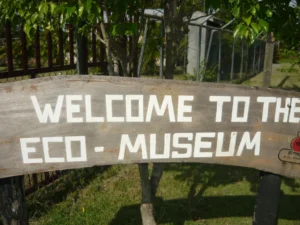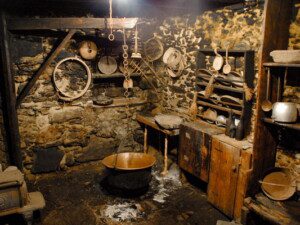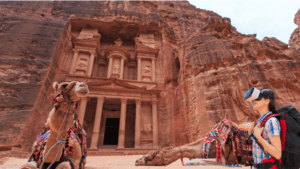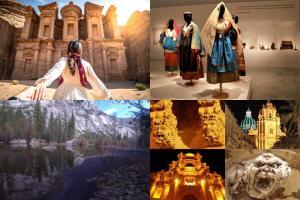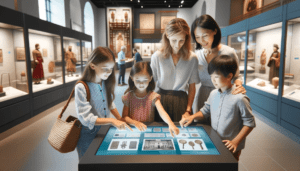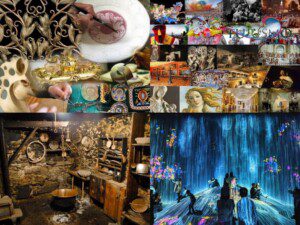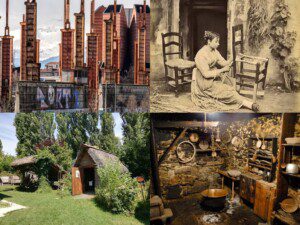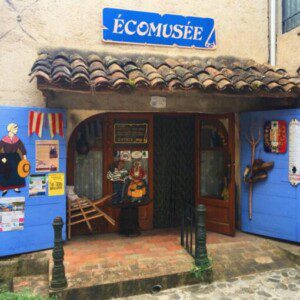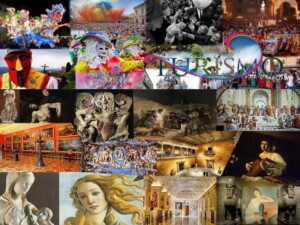Destination Manager (SP/TAH-CF/PTUMN1)

SP/TAH-CF/PPC14 Scheme (Beta Version)
Reference scheme developed in accordance with the standard: SP/TAH-CF: Professional Standard (SP) 3.0 based on the professional competencies indicated in Competence Framework for Tourism, the Arts and Cultural Heritage, defined in line and in compliance with the European Qualification Framework (EQF), the Recommendation of the European Parliament and of the Council 2009/C 155/02 (European credit system for vocational education and training -ECVET), and to the sAPNR chema (Unregulated Professional Activities) adopted by UNI for the technical standardization of unregulated professions.
The scheme is subjected to an initial public inquiry made available to all stakeholders in the cultural chain in order to collect comments and contributions useful for improving its contents.
All interested parties are invited to improve the scheme by sending their contributions to info@aiptoc.it and joining, if they wish, the project TAS: Tourism, Art and Entertainment
1. Title and Description
PTUMN1: Destination Manager (VI Level EQF)
The Destination Manager (or Manager for the Development and Competitiveness of Tourist Destinations) proposes Tourist Development Plans and evaluates the competitiveness of both the Tourist Destinations and the individual territorial tourist offers.
Equipped with a profound knowledge of the tourist heritage of the reference territory, the Destination Manager is able to recognize the specific potential of a territory in terms of tourism development. This expertise allows him to significantly contribute to the valorisation and development of local tourism.
This professional figure has specific skills to offer support in a broad reference context:
- Macrocontext: consultancy to measure the competitiveness of the global tourist offer and the drafting of the Tourist Development Plan for the purpose of promoting and relaunching a tourist destination
- Microcontext: consultancy to measure the competitiveness of the individual territorial tourist offer.
Therefore, the scope of work covers the following sectors:
- Public entities: Institutions involved in tourism promotion
- Private organizations of the tourism sector: profit and non-profit organizations dealing with: tourist services, tourism promotion, fruition of cultural heritage
- Own in the capacity of Consultant or Industry Expert
2. Standards of Reference
- European Qualification Framework (EQF)
- Recommendation 2009 / C 155/02 (European Credit System for Vocational Education and Training - ECVET)
- Law 4/2013 relating to non-regulated professions
3. Terms and Definitions
please refer to the next version
4. Specific tasks and activities
When assigning tasks, the following distinction was made:
- Fundamental tasks: indispensable tasks for the professional figure
- Optional tasks: tasks additional to the fundamentals which are at the discretion of the individual professional or which depend on particular ecomuseum contexts
Fundamental tasks and specific activities
- T1: Carry out study, research and analysis activities in the field of development and strategies for tourism promotion and in similar and related disciplines
- T2: Identify, catalogue, analyze and document the territorial tourist heritage
- T3: Analyze the Reference Context
- T3.1 Identify and Analyze sector legislation
- T3.2 Identify and Analyze the stakeholders (who are the interested parties: internal/external)
- T3.3 Identify and analyze the tourist, economic and social context of reference
- T4: Evaluate the needs and expectations of real and potential users for the reference destination
- T5: Design and implement Territorial Tourist Development Plans capable of improving the Tourist Destination
- T6: Develop Marketing and Promotion Plans: Develop and implement marketing plans to attract tourists.
- T7 Competitiveness Assessment: Analyze the competitiveness of destinations and tourist offers, identifying strengths and points for improvement.
Optional tasks
- T8: Carry out training and education activities in the field of Tourist Destinations
- T9: Interfacing in a foreign language according to the customers' territorial reference target
5. Skills, Knowledge and Autonomy and Responsibility
Note: The competences necessary for a profession, which include skills and knowledge, constitute a dynamic whole. These may vary depending on specific territorial contexts and are subject to changes over time due to factors such as technological evolution or other sectoral developments. Therefore, the examples of skills and knowledge presented here are to be considered purely indicative and not exhaustive, and will be subjected to constant revisions and updates.
T1: Carry out study, research and analysis activities in the field of development and strategies for tourism promotion and in similar and related disciplines
Ability
- SQ1: Analytical skills.
- SQ2: Synthesis ability.
- SP13: Analysis and evaluation of the territorial context to identify strengths and weaknesses.
- SP43: Identify and evaluate the applicability of legislation on copyright and copyright
- SP47: Knowing how to use study tools and methodologies
- SP74: Knowledge and analysis of the endogenous cultural attractions of one's territory.
- SP75: Knowledge and analysis of induced attractions.
- SP88: Knowing how to prepare studies, reports and scientific surveys related to the ecomuseum sector
- SP89: Know how to develop and promote research projects relating to tourist destinations
- SP90: Knowing how to coordinate or participate in scientific and editorial committees related to one's reference sector
- SP92: Apply Documentary Research techniques and methodologies
- ST11: Use information search tools
Additional required knowledge:
- KS116: Research tools and methodologies
- KS128: Documentary Research Methodologies
- KS130: Research planning methodologies relating to the ecomuseum sector
- KS217: Social Research Methodologies
- KT5: Basic IT and telematic tools
- KT6: IT tools for online communication and research
- KS24: Familiarity with Destination Management Organizations (DMOs).
- KT25: Legislation on Author's Rights and Copyright
- KS28: Knowledge of tourism institutions and promotion.
- KS29: Tourism Marketing.
- KS216: Principles of Sustainable Development.
T2: Identify, catalogue, analyze and document the territorial tourist heritage
Ability
- SQ1: Analysis skills
- SQ2: Ability to synthesize
- SP105: Cultural Heritage relevant to the (eco) museum collection (Identify, analyse, document, relate, contextualise, develop historical-comparative relationships)
- ST5: Identify and apply the basic IT and telematic tools
- ST6: Identify and apply IT tools for communication
- ST11: Use information search tools
- SP94: Territorial context from a cultural and historical anthropological point of view (analyze, document, report)
- SP100: Identify, analyze, interpret and document cultural identities of the territory taken as reference.
- SP105: Identify, analyze and document the cultural heritage of the territory taken as reference.
- SP126: Interpretation Experience Paths (identify, analyze, document, report)
Based on the peculiarity of the tourist destination, the general skills indicated must be particularly in-depth in the sectors that characterize the local territory taken as reference which can be, for example: Identifying, analysing, documenting, relating, contextualising, developing historical-comparative reports of cultural heritage and tourism belonging to one or more of the following (non-exhaustive list):
- SP29: Unesco Heritage (Identify, analyse, document, report)
- SP30: Naturalistic Heritage (Identify, analyze, document, report)
- SP31: Historical, Artistic and Archaeological Heritage (Identify, analyse, document, relate)
- SP32: Intangible Heritage (Identify, analyse, document, report, interpret)
- SP33: Food and Wine Heritage (Identify, analyse, document, relate)
Additional required knowledge:
- KS145: Document management principles, methods and techniques
- KS194: Local cultural endogenous attractions
- KS195: Territorial natural endogenous attractions
- KS196: Induced territorial attractions
- KS246: Methodologies and tools for identifying tourist heritage
- KS249: Heritage Interpretation
- KS263: Local cultural identities
- KS264: Tourist Heritage of the territory taken as reference
- KS352: Elements of Tangible and Intangible Cultural Heritage
General knowledge of Cultural Heritage must include both tangible and intangible assets and be particularly in-depth in the sectors relating to museum collections. Below is an illustrative and non-exhaustive list
- KTU Unesco Heritage
-
- KTU1: Unesco Conventions on Material Cultural Heritage
- KTU2: The World Heritage List (WHL)
- KTU3: UNESCO Institutions for Cultural Heritage
- KTU4: World Heritage sites at risk
- KTU5: The Proposal List of World Heritage
- KTU6: The procedures for the recognition of Unesco sites
- KTU7: Guidelines for drafting and implementing management plans
- KTU8: Models for the implementation of Management Plans
- KTU9: Sites on the World Heritage List
- KTU10: Unesco Global Biospheres and Geoparks
- KTU11: Creative Cities Network
- KTU12: Unesco Conventions on Intangible Cultural Heritage
- KTU13: The World List of Intangible Cultural Heritage
- KTU14: Other Programs for the protection and promotion of Cultural Heritage
- KTN Natural Heritage
-
- KTN1: Protected Natural Areas
- KTN2: Parks and Nature Reserves
- KTN3: Nature reserves
- KTN4: Natura 2000 network
- KTN5: Sites of Community Interest (SIC)
- KTN6: Special Protection Areas (SPAs)
- KTN7: Special Areas of Conservation (SAC)
- KTN8: The Wetlands
- KTN9: The Geosites
- KTN10: Management tools for protected natural areas
- KTN11: Landscape Plans
- KTN12: The environmental protection and supervisory bodies
- KTN13: Strategies for Biodiversity
- KTI Intangible Heritage
-
- KTI1: Demo-ethno-anthropological heritage (DEA)
- KTI2: Registers of Intangible Heritage
- KTI3: Religious Rites and Festivals (Celebrations)
- KTI4: Crafts, Knowledge and traditional working techniques (Knowledge)
- KTI5: Traditions and Oral Expressions (Expressions)
- KTI6: Performing Arts
- KTI7: Places of Memory and Symbolic Places
- KTI8: Places of Myth and Legends
- KTI9: Places of the Sacred
- KTI10: Places of historical events
- KTI11: Places of historical personalities and culture
- KTI12: Historical places of work
- KTI13: Places of the literary story
- KTI14: Places of television and film storytelling
- KTI15: Ethno-anthropological museum heritage
- KTI16: Ethnomusicological Heritage
- KTI17: Literary parks
- KTS Historical, Artistic and Archaeological Heritage
-
- KTS1: Archaeological Tourism
- KTS2: Parks and Archaeological Sites
- KTS3: Paleolithic, Mesolithic and sites of tourist interest
- KTS4: Neolithic, Metal Age and sites and sites of tourist interest
- KTS5: Main architectural styles
- KTS6: Tourist sites from the Greek and Roman times
- KTS7: Testimonies of Byzantine and Lombard civilization
- KTS8: Sites of tourist interest from the Norman period
- KTS9: Baroque and Rococo
- KTS10: Neoclassical Architecture
- KTS11: The Testimonies of Liberty
- KTS12: The historic villages
- KTS13: The Museum Heritage
- KTE Food and Wine Heritage
-
- KTE1: Typical products
- KTE2: Food and wine tourism
- KTE3: The quality certification of DOP, IGP and TSG food products
- KTE4: Traditional Agri-Food Products
- KTE5: Other forms of recognition of typical products
- KTE6: The wine roads
- KTE7: The production specifications
- KTE8: Organic products
- KTE9: Farmhouses
- KTE10: Quality rural and agri-food districts
T3: Analyze the Reference Context
- SP102: Analyze the territorial context from the tourist point of view.
Activity T3.1 Identify and analyze sector regulations
Ability
-
-
- SQ1: Analysis skills
- SP1: Identify and evaluate the applicability of the rules for the protection and use of the Cultural and Landscape Heritage
- SP2: Identify and evaluate the applicability of the legislation on safety in the workplace with relevance to its reference sector
- SP3: Evaluate the applicability of funding for the sector supply chain
- SP4: Identify and evaluate the applicability of the Tourism Legislation
- SP22: Identify and evaluate the applicability of Sector Policies
- SP25: Evaluating the applicability of Programs, Conventions and Institutional Acknowledgments
-
Additional required knowledge:
-
-
- KS39: The legislation for the protection and use of Cultural Heritage
- KS40: The criteria for the protection of cultural heritage
- KS41: The various levels of protection
- KS43: Landscape assets
- KS47: The legislation on privacy and the tourism sector
- KS48: The European Regulation 2016/679
- KS49: The legislation on safety in the workplace in the tourism sector
- KS50: Funding for the Tourism and Cultural Sector
- KS52: Consumer protection legislation
- KS232 Regulations for the Protection of Cultural Heritage
- KTN12: The protection and supervisory bodies
- KT20: Waste disposal regulation
-
Activity T3.2 Identify and analyze stakeholders (who are the interested parties: internal/external)
Ability
-
-
- SQ1: Analysis skills
- SP24: Identify the Strategic Stakeholders
-
Additional required knowledge:
-
-
- KS27: Local tourism systems
- KS28: Institutions and tourism promotion
- KS24: Destination Management Organization (DMO)
- KS92: Supervisory and protection bodies
- KTN12: The protection and supervisory bodies
-
Activity T3.3 Identify and analyze the tourist, economic and social context of reference
Ability
-
- SQ1: Analysis skills
- SP30: Analyze and relate the Naturalistic Heritage
- SP31: Analyze and relate the Historical, Artistic and Archaeological Heritage
- SP32: Analyze and report the Intangible Heritage
- SP33: Analyze and relate the Food and Wine Heritage
- SP96: Identify the economic and social context of the territory
Additional required knowledge:
-
- KS3: Experiential Tourism
- KS91: Theories and Models of Experiences
- KS93: Characteristics of Experiences
- KTN: The Naturalistic Heritage
- KTE The Food and Wine Heritage
- KS16: Made in Italy Tourism (Artistic Craftsmanship)
- KTU Unesco Heritage
- KTI Intangible Heritage
- KTS Historical, Artistic and Archaeological Heritage
T4: Evaluate the needs and expectations of real and potential users for the reference destination
Ability
- SQ1: Analysis skills
- SQ2: Ability to synthesize
- SQ10: Analyze user/beneficiary requirements
Additional required knowledge:
- KQ2: Quality Management - Factors, indicators and standards of quality in services
- KQ22: Quality Management - Factors (dimensions) and quality indicators
- KQ33: Quality Management - Stakeholder Requirements Analysis
- KT26: Needs analysis methods and tools
T5: Design and implement Territorial Tourist Development Plans capable of improving the Tourist Destination
T5.1 Design
Ability
- SQ1: Analysis skills
- SQ11 Design processes and services
- SQ12: Implement, document and classify core processes
- SQ14: Propose process changes to facilitate and rationalize improvements
- SQ18: Identify, understand and evaluate quality factors, indicators and standards
- SP3: Evaluate the applicability of funding for the sector supply chain
- SP16: Perform SWOT Analysis
- SP22: Identify and evaluate the applicability of Sector Policies
- SP25: Evaluating the applicability of Programs, Conventions and Institutional Acknowledgments
- SP93: Classify and evaluate the various types of tourist routes
- SP107: The Local Development Plan based on Interpretation (conception, design and implementation)
- SP109: Cultural context (know, analyze, interpret)
- SP135: Territorial Development Plans (Identify purpose and objectives, design)
Additional required knowledge:
- KQ1: Quality Management - The UNI EN ISO 9001 standard
- KS21: Strategic Plans for Tourism
- KQ22: Quality Management - Factors (dimensions) and quality indicators
- KQ11: Quality Management - Design and development;
- KT5: Basic IT and telematic tools
- KT16: Corporate Organizational Models
- KS3: Experiential Tourism
- KS4: Sustainable Tourism
- KS5: Accessible Tourism
- KS6: Nature Tourism
- KS7: Cultural Tourism
- KS22: Culture, tourism and economic development
- KS23: Tourist Destinations
- KS24: Destination Management Organization (DMO)
- KS25: Tourism/cultural competitiveness models
- KS26: Innovative models for measuring tourist/cultural competitiveness
- KS27: Local tourism systems
- KS28: Institutions and Promotion of the territory
- KS29: Tourism Marketing
- KS45: Landscape planning
- KS99 Risk Management
- KS126: Principles of Sustainable Development
- KS171: Tourist Planning
- KS302: European, national and regional policies on culture and sustainable development
- KS91: Theories and Models of Experiences
- KS93: Characteristics of Experiences
- KS95: Designing Experiences
- KS216: Principles of Sustainable Development
- S111: Sustainability of Events
- KS110: Events: The Location
- KS411: Networking Strategies (Create and maintain partnerships with travel agencies, tour operators and other key industry partners)
T5.2 Implementation
Ability
- SQ4: Ability to control
- SP42: Verify the correct application of the legislation on privacy
- SP87: Identify and evaluate the applicability of the Heritage Protection Regulations
- SQ4: Ability to control
- SP110: Know how to use organizational techniques and methodologies for the creation of Tourism Development Plans
- SP111: Ability to relate and inform in relation to the context of Tourist Destinations
- ST21: Ability to respect deadlines and programmes
- ST1: Ability to communicate also in relation to the different characteristics, typologies and expectations of the users/beneficiaries
- ST3: Conflict management skills
- SP133: Networking and Collaboration (Collaborate with Local Stakeholders: Work with public bodies, private businesses and local communities to develop and implement tourism plans.)
- SP134: Mediation and Negotiation (mediate between different needs and expectations, balancing the interests of different interested parties.
- SP135: Territorial Development Plans (implementation)
Additional required knowledge:
- KQ7: Quality Management - Planning and monitoring of the service
- KS101: Basic IT and Telematics
- KS213: Environmental Education and Sustainability
- KN13: Strategies for Biodiversity
- KT1: Communication
- KT2: Group management techniques
- KT3: Conflict Management Techniques
- KT24: Elements of Leadership and Group Psychology
- KT99 Risk Management
- KS230: Methods and techniques for creating and organizing educational itineraries
T6: Develop Marketing and Promotion Plans: Develop and implement marketing plans to attract tourists.
Ability
- SP8: Develop a Communication Plan for the reference sector
- SP11: Identify the web technologies to be used for territorial marketing
- ST1: Ability to communicate and involve
- ST6: Identify and apply IT tools for communication
- SP39: Apply multimedia presentation techniques
Additional required knowledge:
- KS29: Tourism Marketing
- KQ34: Quality Management - Internal and external communication
- KS30: Tourism and Communication
- KS31: The Communication Plan
- KS32: Online Marketing and Promotion
- KS33: Web Marketing Techniques
- KS34: Social Marketing
- KS100: Information technology for communication
- KS121: Relations with institutions
- KS268: Social Communication
- KS59: Sociology of Communication
- KS147: Science of communication
- KS104: Communication and Conflict Management
- KS105: Communication styles and effective communication
- KS269: Visual Communication
- KS267: Elements of Ecomuseum Dissemination
- KS268: Social Communication
T7 Competitiveness Assessment: Analyze the competitiveness of destinations and tourist offers, identifying strengths and points for improvement.
Ability
- SQ14: Propose process changes to facilitate and rationalize improvements
- SQ16: Evaluate and analyze individual processes to identify corrective and improvement actions
- SQ20: Apply monitoring methodologies and techniques
- SQ21: Apply Customer Satisfaction methodologies and techniques
- SQ22: Monitor and Evaluate the provision of services
- SP16: Perform SWOT Analysis
Additional required knowledge:
- KQ13: Quality Management - Monitoring and measurement of processes and services
- KQ14: Quality Management - The Management of Non-Conformities and Corrective Actions
- KQ15: Quality Management - Evaluation of the quality of services
- KQ35: Quality Management - Continuous Improvement
- KS25: Tourism/cultural competitiveness models
- KS26: Innovative models for measuring tourist/cultural competitiveness
- KS45: Landscape planning
- KS99 Risk Management
Optional tasks
T8: Carry out training and education activities in the field of Tourist Destinations
Ability
- SP36: Carry out training and information with reference to matters related to tourism activities
- SP45: Develop training/information projects in the tourism sector
- SP46: Organize and manage training/information events in the tourism sector
- ST22: Knowing how to apply tools, including IT tools, for drafting educational reports and documents
Additional required knowledge:
- KS112: Teaching techniques and methodologies
- KS127: Methodologies and techniques for the evaluation of training events
- KS128: Elements of Pedagogy
- KS129: Research and teaching methodologies relating to the ecomuseum sector
- KS239: Characteristics of educational services in tourism
Additional required knowledge::
T9: Interfacing in a foreign language according to the customers' territorial reference target
Ability
- ST8 Use foreign languages in the workplace according to the territorial reference target of customers and visitors
Additional required knowledge:
- KS113: At least one foreign language in relation to the customers' territorial reference target
VI Level. EQF
8. Profile Evaluation Criteria
For the attestation of the possession of the requisites of competences, abilities and knowledge related to the profession it is proposed to take into consideration methodologies that take into account the following aspects in a way that are not mutually exclusive, i.e. possibly in combination with each other:
- Qualifications issued in the academic field (Formal Learning)
- Specific training (Non-formal learning)
- Work or professional experience (Informal learning)
Work or professional experience can be demonstrated through various tools including:
- Curriculum Vitae
- Professional portfolio
- Objective placement on the market (awards, regional, national or international recognition)
- Publications (scientific or editorial)
Requirements for access to the professional figure
- Having attended specific training courses for the professional figure in question organized / recognized by Universities, Regions or Associations of professionals established pursuant to law 4/2013 and recognized by the MISE and at least six months, even non-continuous, of proven work or professional experience in the reference sector
Or
- Having attended a specific training course whose contents are explained by UNI standards, where existing, as long as they are consistent with the skill in question and at least 6 months of work or professional experience in the reference sector
Or
- Three-year degree and at least two years, even if not continuous, of proven work or professional experience in the reference sector
Or
- Second grade secondary school diploma and at least five years, even if not continuous, with proven work or professional experience in the relevant sector
Or
- Be included in the Registers of Professional Associations established pursuant to Law 4/2013 and recognized by the MISE as long as they refer to the competence in question
- Be included in Registers of Certified Professionals based on specific UNI standards, where existing, as long as they are consistent with the expertise in question
Featured training
Basic courses
Thematic courses on the Design of Experiences
Courses with Professionalizing Certification pursuant to Law 4/2013






